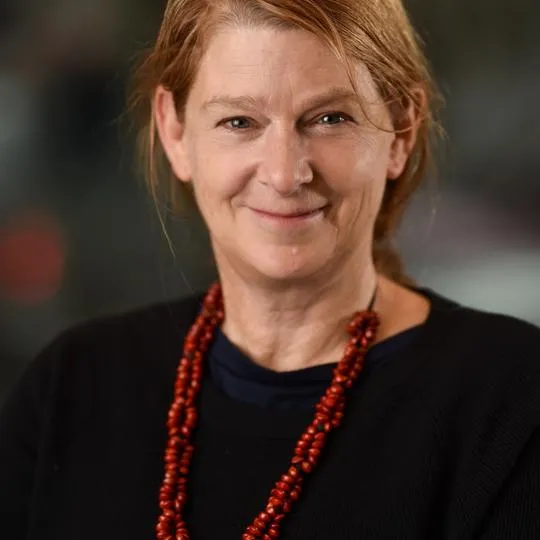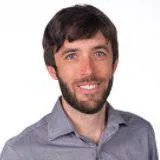28 November 2023
Exchanging ideas on key climate actions needed at COP28
Students, academics, staff and visitors came together to discuss priorities for climate action ahead of this year’s COP28 meeting of world leaders.
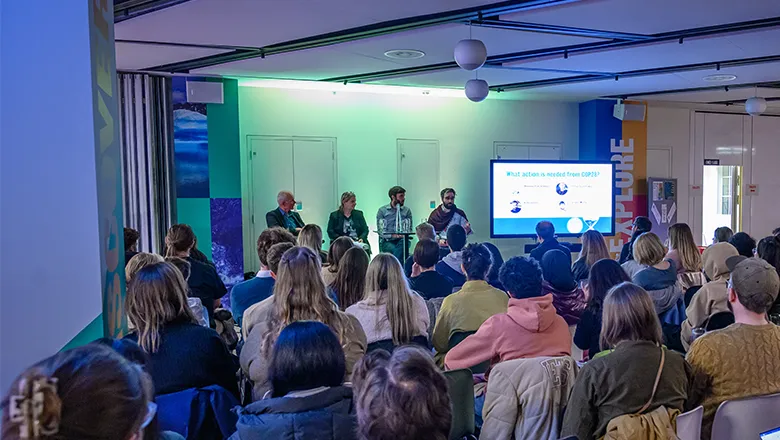
The event, organised by the Faculty of Social Science & Public Policy (SSPP), featured interactive activities, a new exhibition highlighting parts of the world being impacted by climate change and a panel discussion on what action is needed at the upcoming COP28 meeting in Dubai.
The activities, hosted by academics and students, included exploring whether digital technologies will have a positive or negative effect on climate change, a showcase of student research and displays of art, films and photographs illustrating our important work around wildfires.
Virtual reality headsets and tablets offered attendees the chance to explore how conflict, insecurity and militarisation are influencing climate change and to experience activities being used to educate and influence decision makers. People shared their favourite memories of UK weather and what they will miss as it alters. They also chatted with King’s ECOSoc about key topics on climate action.
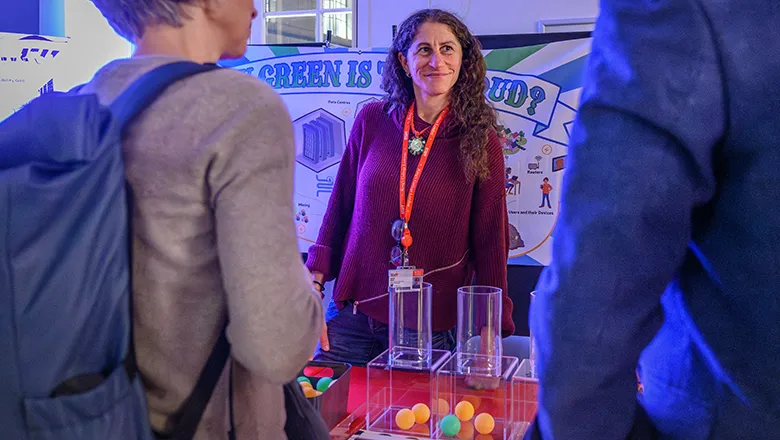
As part of the event, held in The Exchange in Bush House, the faculty launched its new visual exhibition ‘Places without Postcards’, highlighting parts of the world many might not have heard of but are key to the story of climate change.
These include the site of the world’s highest weather monitoring station on Everest, a tiny Pacific atoll threatened by seal level rise, a city in India where thousands of people process mountains of toxic metals from digital waste, a town in Africa likely to be buried under Saharan sand and a Cambodian farming community whose livelihoods are becoming ever more vulnerable because of climate change.
The exhibition remains on display for members of our King's community to view in The Exchange in Bush House NE, Strand campus, until 12 December.

The evening also featured an expert panel discussion on what action is needed from COP28 hosted by Professor Frans Berkhout, Assistant Principal (King’s Climate & Sustainability) who outlined key issues likely to be on the agenda at COP28 including global finance, the fossil fuel phase-out and an assessment of progress made since 2015.
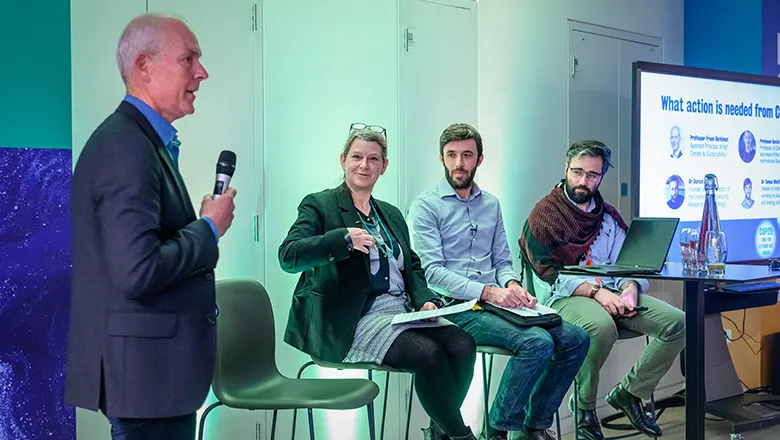
Professor Sarah Bracking, Professor of Climate & Society and Head of the Department of International Development, told the audience that the private sector is investing a “miniscule crumb” into green assets. She said they also give people the impression that they can treat renewables and green investment as a sideline, while doing nothing about reducing reliance on oil and gas, which is scientifically untrue.
Dr Duraid Jalili, founder and co-Director of the Environmental Security Research Group at King’s, responded to a question from the audience around asymmetry of power among countries attending COP. He said the system can feel rigged as those with power and influence will seek agreements that bring change without too much disruption to the status quo. He added that indigenous communities have been integrated more into the findings that have informed this COP & have a strong ‘moral voice’ but it was not clear how far they will influence decision making at the upcoming global meeting.
In response to a question about the President of COP28 being the CEO of an oil company , Professor Frank Berkhout said he was “deeply sceptical” about oil companies and their transition away from fossil fuels, pointing out that so far, their strategy seemed to be around who would be able to “pump the last barrel”. However, he said they might have an important role to play in exploring new technologies such as Carbon Dioxide Removal (CDR), and they might extend their lifetimes if they start investing heavily in carbon capture and storage.
Dr Tomas Maltby, Reader in International Politics who work focuses on climate and energy policies, said pledges to phase out fossil fuels can be useful for people and politicians to aim for initially. This should then be followed by a ‘rachet’ towards tougher targets. However, he said the UK Government is changing its mind on various things and some targets have been pushed back.
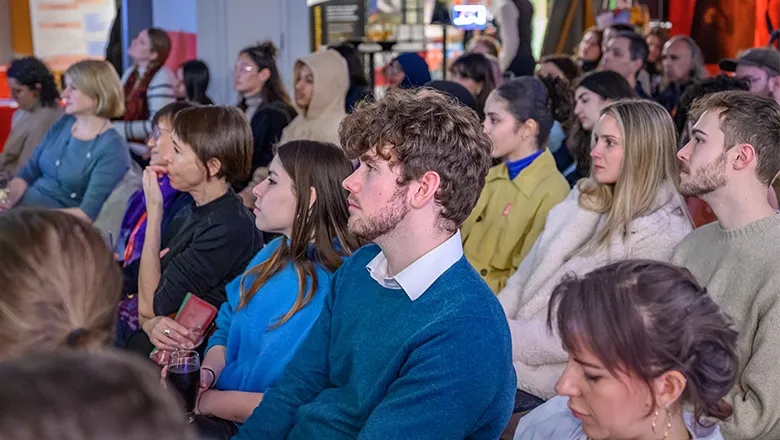
View a recording of the full panel discussion by clicking below.


